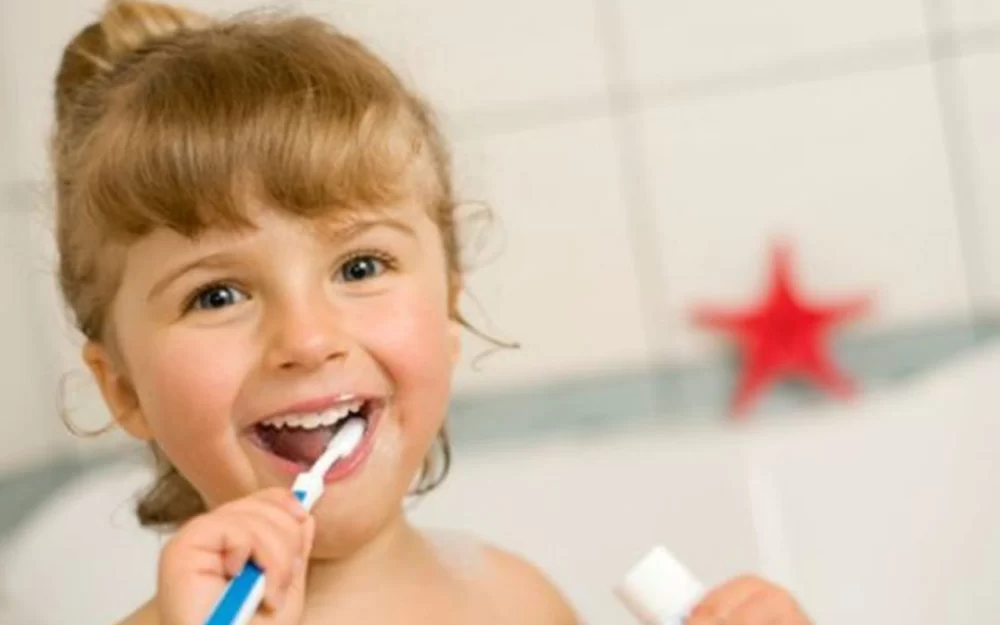
How to Improve Dental Hygiene for Kids
As a parent, one of my main concerns has always been ensuring that my children develop good habits that will help them stay healthy throughout their lives. Dental hygiene is one of the most important aspects of their overall health. I’ve learned over the years that teaching kids proper dental hygiene doesn’t just mean brushing their teeth once a day; it’s about creating lasting habits that will set them up for a lifetime of good oral health. I remember when my child was first starting to learn how to brush on their own—it was a bit of a challenge, but with the right approach, we were able to turn it into something they looked forward to. In this article, I’ll share my personal tips on how to improve dental hygiene for kids and ensure that they develop strong, healthy teeth that will last a lifetime.
1. Start Early with Proper Oral Care
It’s easy to overlook the importance of early dental care, but starting at the right time is crucial. I started cleaning my baby’s gums even before their first tooth appeared. Using a soft cloth to wipe their gums after feedings helped remove bacteria and prevent the buildup of plaque. I had no idea at first that oral care should begin so early, but once I realized this, it became a routine that helped my child get accustomed to the process from the beginning.
Once the first tooth appeared (which usually happens around six months), I began using a small, soft-bristled toothbrush with just a tiny amount of fluoride toothpaste. This simple practice helps get them into the habit of brushing and also establishes the importance of oral hygiene. The earlier you start, the easier it will be for them to develop these habits naturally as they grow older.
2. Make Brushing Fun and Interactive
When my child was younger, getting them to brush their teeth wasn’t always easy. Like many parents, I faced resistance, and it wasn’t always smooth sailing. However, I soon discovered that making brushing fun was the key to getting them excited about it. I let them pick out their own toothbrushes with their favorite characters, and choosing toothpaste flavors they liked was a great motivator. This simple involvement made brushing something they looked forward to.
Another tip I found useful was incorporating fun songs or games into the routine. There are many apps and videos that teach kids how to brush properly with fun songs and characters. I even started brushing my own teeth alongside them to set an example, which not only kept them engaged but also helped them feel like it was a family activity rather than a chore.
3. Brush Twice a Day, Every Day
One of the most important habits I worked hard to instill in my child was brushing twice a day—once in the morning and once before bed. I made sure to stick to this routine consistently, even if it meant reminding my child on the occasional busy morning. I found that setting a schedule for brushing and sticking to it made it easier to maintain good habits. As my child got older, I involved them more in the process, giving them the responsibility to brush on their own while still supervising to ensure they did it correctly.
Brushing before bed is especially important because it removes the food particles and plaque that accumulate throughout the day. I’ve learned that going to bed without brushing can lead to an increase in plaque buildup and cavities, as the sugar from foods and drinks can fuel the bacteria in the mouth. Regularly brushing twice a day helps reduce the chances of cavities, gum disease, and bad breath.
4. Don’t Forget Flossing
When I first introduced flossing to my child, I didn’t realize how important it was to start early. Flossing can be a challenge for younger children, but I quickly learned that it’s essential to prevent cavities in between their teeth. I started using floss picks, which made it easier for them to maneuver and ensure they got between each tooth. Initially, I flossed for them, but as they grew older, I taught them how to do it on their own, which not only helped with their independence but also helped them learn proper technique.
Flossing removes plaque and food particles from areas that a toothbrush can’t reach. While brushing helps remove the larger surface plaque, flossing targets the gaps between teeth, where cavities are more likely to form. I made it a habit to floss once a day, right before bedtime, which helped keep their teeth extra clean and reduced the risk of cavities. It’s important to emphasize the importance of flossing regularly, even if your child isn’t thrilled about it. As they get older, flossing becomes second nature, and the benefits are huge.
5. Pay Attention to Their Diet
As much as oral hygiene matters, I’ve learned that diet plays a huge role in my child’s dental health as well. I started by reducing sugary snacks and drinks, which are a major contributor to cavities. While it’s okay for my child to indulge occasionally, I made sure to offer healthier alternatives like fruits, vegetables, cheese, and nuts. These foods help neutralize acids in the mouth and promote stronger, healthier teeth.
Drinks like juice, soda, and flavored milk can be loaded with sugar, which increases the chances of cavities. Water is the best beverage for keeping teeth healthy, and I made it a point to always have a bottle of water available for my child to drink throughout the day. I also limited snacks in between meals to avoid prolonged exposure to sugar. If my child wanted something sweet, I offered them naturally sweet foods like apples, berries, and yogurt, which not only taste great but are also less likely to harm their teeth.
6. Regular Dental Visits Are Crucial
One of the best decisions I made for my child’s dental hygiene was to schedule regular dental checkups. The American Academy of Pediatric Dentistry recommends that children have their first dental visit by their first birthday or within six months after their first tooth appears. When I took my child to their first dentist appointment, I was pleasantly surprised at how gentle and friendly the dentist was, which made my child feel at ease.
Regular dental visits are essential for early detection of potential problems like cavities, alignment issues, or gum disease. These visits also allow the dentist to clean my child’s teeth professionally, something that can’t always be achieved with regular brushing and flossing at home. I made sure to schedule these checkups every six months, which allowed my child’s dentist to monitor their oral health and offer additional advice on how to improve their dental habits.
7. Encourage Healthy Habits and Lead by Example
Ultimately, I found that the best way to ensure my child developed great dental hygiene habits was by setting a good example. I made sure to brush and floss my own teeth regularly, so they could see the importance of it. I also talked to them about the benefits of good dental hygiene, explaining why it’s important to keep their teeth clean and healthy. When they saw me prioritizing my own oral health, it motivated them to do the same.
Creating a routine together—whether it’s brushing our teeth at the same time or making it a family activity—also helped reinforce the idea that dental care is a family priority. The more involved they became, the more excited they were to take care of their own teeth, and I could see how much more confident they were about their smiles as they grew older.
Conclusion: Make Dental Hygiene a Lifelong Habit
Improving your child’s dental hygiene doesn’t have to be difficult—it’s about building good habits early and consistently reinforcing them. From starting oral care as early as possible, to teaching them how to brush, floss, and eat a balanced diet, there are many simple steps we can take as parents to help our children maintain healthy teeth. The earlier we instill these habits, the better their chances are for a lifetime of good dental health. By being proactive and making dental hygiene a part of everyday life, we can ensure our kids grow up with strong, bright smiles that they can be proud of.







 Brick Dental Studio4.0 (101 review)
Brick Dental Studio4.0 (101 review) Smile Central Dental4.0 (506 review)
Smile Central Dental4.0 (506 review) Providence Pediatric Dentistry4.0 (197 review)
Providence Pediatric Dentistry4.0 (197 review) Promenade Dental Group and Orthodontics4.0 (347 review)
Promenade Dental Group and Orthodontics4.0 (347 review) Linworth Family Dental4.0 (282 review)
Linworth Family Dental4.0 (282 review) Robert Niles5.0 (2 review)
Robert Niles5.0 (2 review) The Importance of Oral Health Education During Pregnancy for a Healthy Pregnancy
The Importance of Oral Health Education During Pregnancy for a Healthy Pregnancy Best Tips for Brushing Your Teeth Properly for Healthy Gums: Essential Techniques for Oral Health
Best Tips for Brushing Your Teeth Properly for Healthy Gums: Essential Techniques for Oral Health Why Skipping Dental Checkups Can Lead to Bigger Oral Health Problems
Why Skipping Dental Checkups Can Lead to Bigger Oral Health Problems Advantages of Porcelain Dental Restorations
Advantages of Porcelain Dental Restorations How Can Diabetes Cause Tooth and Gum Problems? Preventing and Managing Oral Health Issues
How Can Diabetes Cause Tooth and Gum Problems? Preventing and Managing Oral Health Issues Healthy Habits for Promoting Good Oral Health and Hygiene: Tips for a Healthy Smile
Healthy Habits for Promoting Good Oral Health and Hygiene: Tips for a Healthy Smile